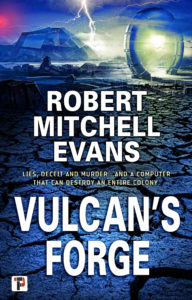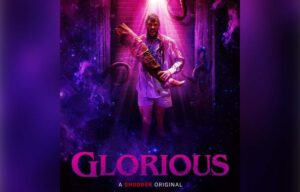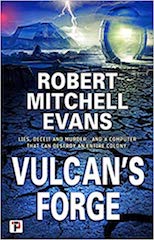Most, but not all sharks, need to constantly move through the water to breath. This was the point of the barrels in Jaws, tire the beast out until it cannot swim and then suffocates in the water.
Like a shark most writers, but not all, need to move from project to project. Always writing always creating on some level. As I finish up my latest military SF adventure novel, not just cleaning up and the prose and getting my sweetie-wife’s assistance on my typos and fondness for run on sentences my mind turns to the next book.
Returning the dark cynical world of crime and people making bad decisions as I have with Vulcan’s Forge, my next novel is set on Mars about 2130. Thematically its draws inspiration from crime and noir movies such as The Maltese Falcon, desperate people trying to escape such as Casablanca, and social commentary such as The Jungle.
Here is a smattering of some of the notes I have written as I begin to lay out the bones of the world before I flesh it out with characters and dilemmas.
Major Economic Industries of MARS
ROCKET FUEL
From Martian water and CO2 and utilizing nuclear power (Fission) mars produces Methane CH4 and O2 for rocket fuel used throughout the Solar System. The energy coast of lifting the fuel off the Mars is less than half (about 40%) of that compared to Earth. (3.8 KM/s vs 9. Km/s) This fuel is then transported to Earth and the asteroid mining operations for use in scientific and commercial operations.
MANAGING SPACE OEPRATIONS
Given the lower energy costs to lift from the surface, Mars has also become the principal site for directing space operations. The majority of the operations are commercial but substantial scientific and research projects, crewed and uncrewed exploration, process development, and pure research, are also managed from Mars for governments, Universities, and Private concerns.
WEALTHY RETIREMENT LIVING
The lower Martian gravity, about .3G is discovered to prolong life by way of less stress on vital organs. (Lunar gravity about .16 is too low and like no gravity induces muscle and bone loss along with other health troubles.) Mars hosts a community of wealthy person who have permanently relocated to the red Planet in retirement to extend their lives. They do not live communally, they are rich after all, but have in effected formed their own colony within the Martian community. This option is very expensive with the total number of wealthy retirees less than a thousand. However, because of their desire for personal services they employee a fair number of native Martian persons.
WEALTHY TOURISM
Mars is an exotic destination that can only be afforded by the wealthy. Given the scheduling of the cyclers transferring between Earth and Mars no one visits Mars for a week or two, but tourists are usually required to stay about 2 years. This reduces the pool of potential tourists to just the wealthy who can either afford to ignore their lives and commitments for two or more years or those still wealthy but able to manage their duties remotely and with lengthy communications lags.
MARTIAN SCIENTIFIC RESEARCH
A small community of rotating scientists from Earth live on mars researching the planet itself. Due to bacterial contamination from the settlement of the colony the question of native Martian life has yet to be definitively answered. (all microorganisms discovered to date have similar enough genetic make-up it could either be parallel evolution or contamination.) The scientists live is spartan conditions with nearly all of the technical and lab support coming from native Martian colonists.
MARTIAN FACILITIES SUPPORT
The largest number of people are actual native Martian colonists employed supporting the other forms of economic activity on the Red Planet. Nearly all of these people dream of living on Earth under open skies and weather, but these are dreams as they are shackled to the planet by their debt. None may immigrate from Mars without first clearing their debt to the colony.
I have major questions to research and answer. What would be the schedule of a Mars cycler, a spacecraft that ferries between Earth and Mars about 2130-2140? What the right inflation factor for cost between now and the novel’s period? How does daily assessed interest make loans nearly inescapable? How does the legal regime on Mars develop? And more.
That said I am excited and looking forward to this new project.



